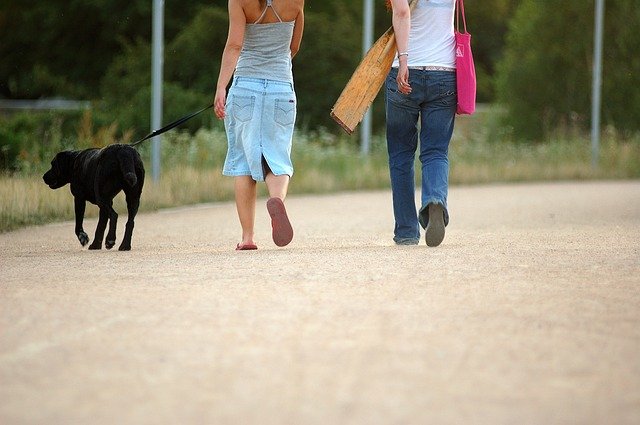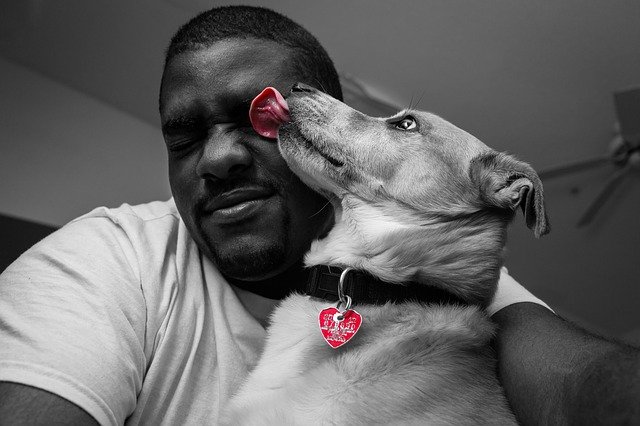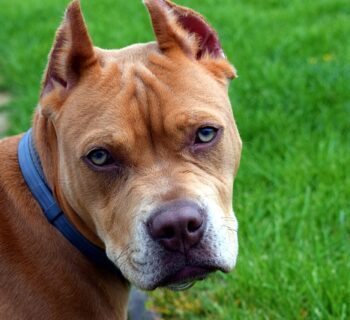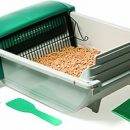How do you potty train a puppy when you work? If this is what you're wondering, then you've come to the right place.
Potty-training a puppy when you work isn't the most straightforward task, but you can do it. And when done right, it should not affect your work or the canine's life. In this article, we'll discuss some helpful tips for potty training your dog if you work long hours. If you know other tried and trusted recommendations, please feel free to share them with us in the comment section below.
First, Are You Actually Ready For A Puppy?
Canines, regardless of their age and size, can be some of the most adorable pets, and it can be hard to resist getting one the first time you see those puppy eyes. However, if you have a busy life, adopting a puppy on impulse isn't something you want to risk. While doable, there is always so much involved with raising a young canine. And unless you think you can effectively potty-train (it's high on the reasons many dogs are put out of homes), you may want to consider getting an older, already potty-trained dog.
Table of Contents
Raising a Puppy While You Work: A Space for Your Puppy
You want your puppy to get that sense of security even when alone in the house. A dedicated space can help you achieve that. You can either use a puppy pen or a small room for this. As it grows, you can consider expanding it. For an added sense of security, install a puppy gate. This is better than a regular door as it still provides your puppy with a sense of freedom even within the pen/room.
Like with small children, you want to make sure that the space is puppy-proofed and free of hazards that could life-threatening to your dog. Ensure that all potential choking hazards (usually small objects) are removed, and electric outlets and wires are either covered or removed. Also, keep things like vases and potted plants out of reach.
In this same space, provide essentials like food, water, and toys to keep your pup full and occupied. Finally, before leaving the house and your puppy in its space, take it out for a potty break, and when it goes, be generous with praise and rewards in the form of treats, toys, and belly rubs.
Potty-Training a Puppy While You Work: Get Help
While dogs will naturally avoid soiling their living area, being left unattended to for long hours may break down this instinct. Even with a dedicated space/pen/crate, you may still need to teach your pup to go outdoors. Aside from doing it for the dog, the last thing you want after a busy day is coming home to a messed pen that you would have to spend time and so much effort cleaning.
In this situation, apart from taking it out to the potty before you leave, you want to have a pet sitter, friend, or neighbor check on it every couple of hours and take it out to the potty before leaving. If the neighbor has to feed it, it should be taken outside to potty and exercise for a few minutes after meals.
Potty-Training a Puppy While You Work: Consider a Doggy Daycare.
While it is not always the cheapest way to potty-train your puppy and provide it some company, it is one of the most reliable. With doggy daycares, busy dog owners can drop off their pups on their way to work and pick them up on the way home. Instead of a neighbor or friend, the staff regularly takes out the puppy for potty breaks and feeds it when needed.
Your puppy also enjoys other benefits, including getting plenty of exercise, socialization with the other dogs, mentally stimulating activities, and interactions with other humans (staff and the clients).
That said, when picking a doggy daycare, you want to make sure that the one you settle for is reputable. A good daycare has high hygiene standards and requires proof of essential vaccinations for every dog.

Potty-Training a Puppy While You Work: Using an Interactive Pet Camera
There are pet cameras designed specifically for puppies left alone for long hours. These types of cameras show what your young canine is up to every time to help put your mind at ease. With these cameras, you will be able to speak to your pet, establish and reinforce positive behaviors even while far away.
How Long Will It Take to Potty-Train My Puppy?
Effectively potty-training any puppy takes time, lots of patience, and close supervision. There is really no way to potty-train your puppy in one week. While some canines may learn faster than others, with most puppies, up to 6 weeks of regular training must be potty-trained without frequent supervision.
Tips for Successfully Potty-Training When You Work
Invest in a food dispenser
Instead of leaving food lying in the bowl before going, use a pet food dispenser. Not only does it keep the food fresh, but it also provides just the amount your puppy needs and, therefore, minimal to zero wastage.
Provide safe chew toys
You want to make sure that any toy you pick is strong and safe enough to be left with a growing puppy. You can even add a delicious treat like peanut butter to keep your pooch extra interested in the toy.
Don't make a big fuss before you leave
Granted, you will miss your pup if you have to be able away for long hours. And this could cause you to make a big fuss like excessively cuddling it or apologizing for leaving, but you send the wrong message to your pup when you do that.
Puppies will understand that you really do not want to leave, thus, causing them to cry. And when they call, you are compelled to get them to stop by offering treats. The result? It is a never-ending cycle of action and rewards or acting up and getting rewarded for it!
What you can do
Even if it is hard for you to part with your pup, you should not make the parting time a big deal. If you can, leave without the dog knowing the exact time you did by keeping it entertained with a toy, food, or treats. You also want to make sure, though, that you interacted or played with it earlier.
Prevent separation anxiety
Separation anxiety is real but can be prevented. Your puppy can get separation anxiety and cry for your return when they connect your absence with long hours of boredom. You can prevent or curb this behavior by providing your pup with effective boredom busters such as safe toys, treats, and even learning to leave home without making a fuss.
Be generous with praises
Don't offer treats to your canine every time, as it is one of the top causes of pet obesity and excessive reliance on rewards. On the other hand, praises have no "side effects" and cost you nothing. When your pup acts right, shower it with compliments, and it will be inclined to repeat the same behavior.
Do not punish your puppy
Accidents are inevitable when potty-training puppies, so anticipate them. And if it happens, do not hit or rub your pup's face in it. Yes, some dog owners believe such punishments help to "set the pup straight," but it doesn't. You only prolong the training phase, and your puppy will only "learn" that you are appalled by a natural bodily function that it cannot help.
Clean up accidents thoroughly
When accidents occur, please don't leave them for later. Try to clean it up immediately and thoroughly. This helps eliminate scent markers that could invite your pup to the same spot if left unattended or poorly cleaned.
For more in-depth tips visit out article on how to keep dogs entertained while you work.
How to Potty-Train a Puppy: Conclusion
Getting a young canine always requires hard work, dedication, consistency, and patience. The outcome (a well-rounded pup) is always worth it when done right. Take your time, seek help, or have someone or an organization do it for you.
Whichever path you take, you want to make sure that it is done well and your puppy is a better pet for it. Also, apply the tips we shared on raising and potty-training puppies even if you have to play only a small role in the potty-training process.
About the Author
Kirsten Heggarty
Kirsten created The Pet Handbook with the aim of sharing her knowledge about pets, pet food, healthy habits, and more. All of her advice is based on years of her own experience with her pets, and feedback that she has received from grateful readers about her tips. If you want to know more please read the About Me page.









